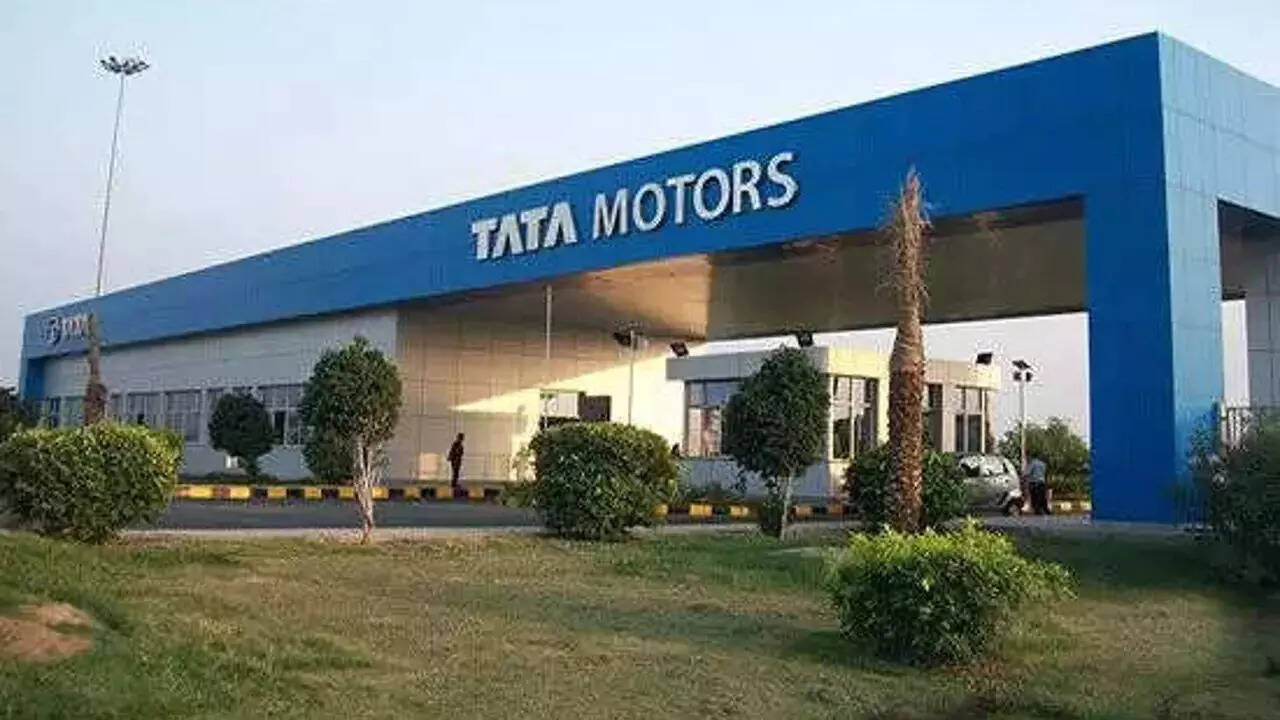
New Delhi: Tata Motors on Wednesday, reported its first quarterly profit in two years on rising demand for passenger cars as well as medium and heavy commercial vehicles.
The parent of Jaguar Land Rover reported a consolidated net profit of INR 29.58 billion (USD 362.5 million) for the quarter ended December 31, compared with a loss of INR 15.16 billion a year earlier, the company said in an exchange filing.
Analysts on average had expected a loss of INR 185.6 million, according to Refinitiv IBES data.
JLR delivered on its plans and achieved positive free cash flow and profitability in the quarter as supplies improved. Revenues were EUR 6 billion, up 28% vs. Q3 FY22 and up 15% sequentially reflecting better supplies, strong model mix and pricing. Profit before tax in the quarter was EUR 265 million, up from a loss of EUR 9 million a year ago with a positive EBIT margin of 3.7%, up from 1.4% in Q3 FY22.
Adrian Mardell, Jaguar Land Rover’s Interim Chief Executive Officer, said, “JLR has returned to profit as chip shortages eased in the quarter and production and wholesales increased. These improved results are testament to the hard work and dedication of our people across the business who have delivered a further increase in production of our New Range Rover and Range Rover Sport models.”
“We remain committed to our Reimagine strategy which will transform JLR into an all-electric modern luxury business, whilst delivering our SBTi climate goals and striving to exceed our clients’ expectations,” he added.
Tata CV revenues in Q3 FY23 were up 22.5% vs. Q3 FY22 at INR 16.9K crore. Q3 FY23 EBITDA margins were 8.4% (+580 bps yoy) and EBIT margins were at 5.9% (+ 650 bps y-o-y) led by better mix, higher realizations, cost savings and softened commodity prices.
Girish Wagh, Executive Director, Tata Motors Ltd, said, “In Q3 FY23, the CV industry witnessed a steady, overall demand. Our focus on creating ‘’Demand Pull’ from customers and sustained emphasis on retail in Q3 FY23 resulted in retail sales surpassing wholesale by 6.3%, thereby enabling reduction in inventory as we transition towards BS VI phase-2 norms. Led by realization improvement, revenue growth was higher than volume growth. Realization improvement coupled with commodity softening and cost control resulted in improved margins.”
He added, “Going forward, we will maintain our agility and keep a close watch on the evolving geopolitical, inflation and interest rate risks on both supply and demand. We will also continue to drive the business with strong customer connect, product and service innovations to improve customer affinity for our brands, step-up registration market shares sustainably, and improve realizations and profitability.”
Tata PV revenues were up 37% vs Q3 FY22 at INR 11.7K crore reflecting higher volumes and realizations. EBITDA margins were 6.9% (+370 bps yoy) and EBIT margins were at 1.5% (+510 bps) yoy driven by improved volumes and mix, higher realizations, softening commodities and certain one offs.
Shailesh Chandra, Managing Director, Tata Motors Passenger Vehicles Ltd and Tata Passenger Electric Mobility Limited, said, “Q3 FY23 was one of the best quarters for the PV industry with strong retails from new launches, robust festive demand, and adequate supply of vehicles. Tata Motors posted its highest ever quarterly retails in Q3 FY23 and crossed the 50,000 units of monthly retail for the first time.”
He added, “Wholesales of 131,297 units recorded in Q3 FY23 (+32.6% vs Q3 FY22) resulted in the business comfortably crossing the distinctive landmark of 500,000 annual units to post wholesale of 526,798 units in CY22. EVs too posted their highest ever sales in Q3 FY23 at 12,596 units (+ 116.2% vs Q3 FY22) and crossed the cumulative sales milestone of 50,000 units. Going forward, we remain vigilant about the evolving demand and supply situation and will stay nimble to take necessary actions swiftly whilst focusing on improving profitability further.”
Also Read:

